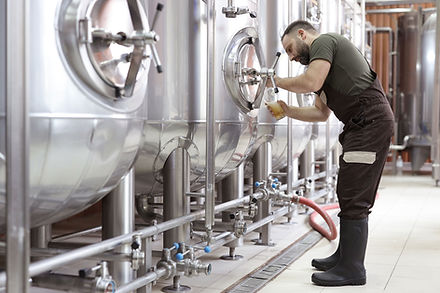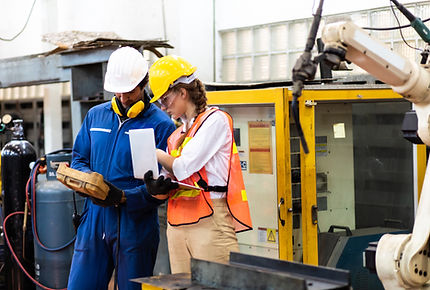

Design to work
Designing Work Environments, Systems, and Processes Around People
Our approach
At Human Factors Consulting, we help organisations design work environments, systems, and processes around the people who use them — because when human performance is optimised, safety, efficiency, and reliability follow.
We specialise in turning human factors into a competitive advantage by reducing risk, improving efficiency, and supporting your people to perform at their best.
Contact us to discuss how we can help make your systems work better — because when people thrive, performance follows.
Rus Fife


Designing workplaces that protect and perform

Workplace and Equipment Design
Eliminate design flaws before they become costly. We evaluate workplaces and equipment to ensure they support safe, efficient operations—reducing fatigue, errors, and injury risk.
Manual Handling and Postural Risk Assessments
Are your people lifting, carrying, or maintaining equipment in high-risk environments? We pinpoint risks and propose design and task changes that protect workers and improve productivity.
Environmental Ergonomics
Invisible stressors such as poor lighting and temperature can quietly destroy performance and morale. We assess and optimise environmental conditions so your people can consistently perform at their best.
Equipment and Tool Usability
Ill-fitting or poorly designed equipment and tools undermine safety and slow down work. We evaluate and guide the selection of equipment that fits real users in real scenarios.
Services
Supporting smarter decisions and reducing human error

Workload and Situational Awareness
Are your people overloaded, distracted, or losing situational awareness? We conduct cognitive task analyses and human error assessments to identify weak points—and build systems that help people think clearly under pressure.
Incident Investigation Support
Most incidents are not due to incompetence—they’re due to system design failures. We use proven cognitive and behavioural frameworks to uncover root causes of human error, helping you prevent future incidents instead of repeating them.
Optimising people and systems

Work System and Process Design
Are your workflows intuitive, reliable, and error-resistant? We redesign processes and procedures to make them easy to follow, hard to get wrong, and tailored for real-world conditions—not just paper.
Training Needs Analysis and Design
Standard training often misses the mark. We identify skill gaps and design learning solutions that are practical, engaging, and effective—so your teams are prepared for what they really face on the job.
Change Management
Change fails when people are left behind. We ensure your change programs are designed with your people in mind—building understanding, capability, and buy-in every step of the way.
Training - turning theory into field ready skills

Ergonomics Risk Assessment Training (QEC, RULA, REBA)
Hands-on instruction in leading assessment tools — including the Quick Exposure Check (QEC), Rapid Upper Limb Assessment (RULA), and Rapid Entire Body Assessment (REBA). Participants learn how to assess real tasks, interpret results, and prioritise controls.
Manual Handling Risk Identification and Control
Focused training on analysing manual tasks, identifying hazardous movements, and applying ergonomic principles to reduce load, strain, and injury risk.
Postural and Task Analysis for Non-Office Environments
Guidance on assessing awkward postures, constrained working spaces, and repetitive tasks in challenging environments such as substations, maintenance platforms, and industrial sites.
Workstation Ergonomics
Training in evaluating and improving seated, standing, and hybrid workstations.
Reducing musculoskeletal injuries

Following a HSE investigation we were commissioned to implement a company wide participatory ergonomics program at a furniture manufacturer. The systems approach resulted in no reportable musculoskeletal injuries on a 6 year follow up.
Employee liability insurance decreased by £60,000 per annum as a direct result of implementing the participatory ergonomics program.
Return on investment: £9.51 saved for every £1 spent.
Case studies
Hybrid working
An employee had been suffering from musculoskeletal aches and pains resulting in extended periods of sickness absence. We conducted a holistic biopsychosocial assessment.
Following implementation of recommendations the employee reported no back pain. No sickness absence on an 8 month follow up. They stated they were ‘feeling good’ and had no aches or pains.
Return on investment: £13 saved for every £1 spent.

